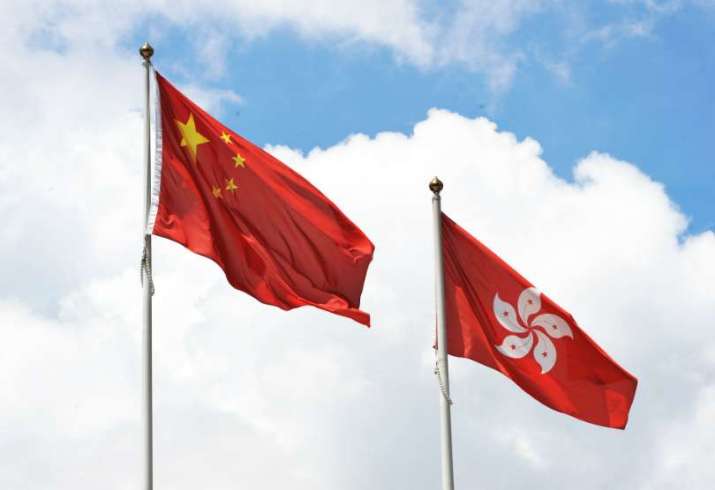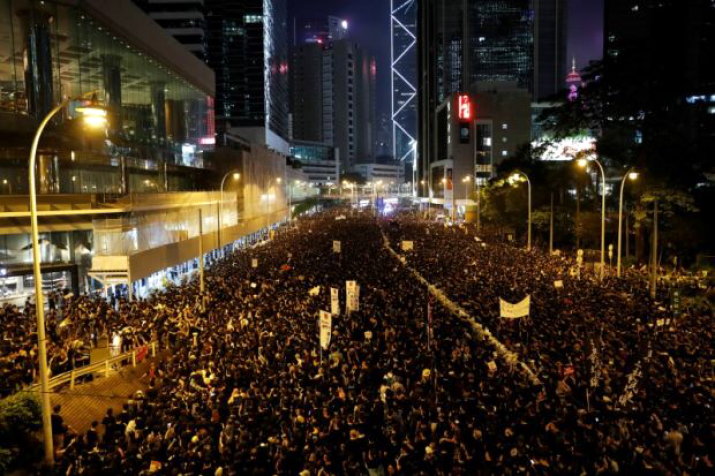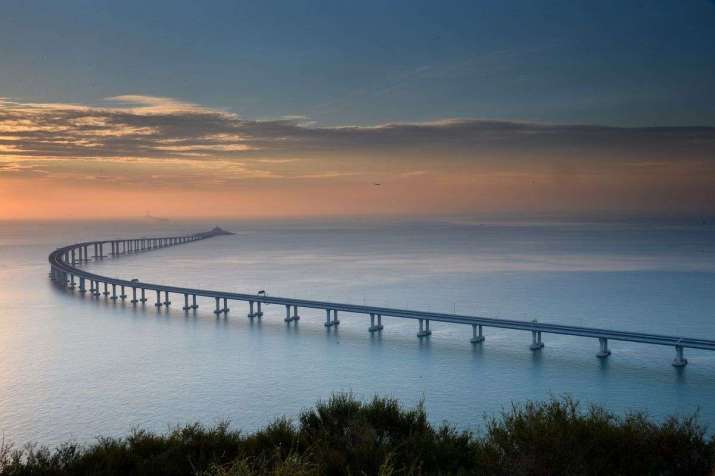FEATURES|THEMES|Commentary
Buddhistdoor View: Hong Kong’s Turmoil – Spiritual Witnessing to Borrowed Time
 From bpr.berkeley.edu
From bpr.berkeley.eduHong Kong is unique. Of course, all cities like to boast of their distinctive constituencies and cultures. Capitals possess disproportionate political gravity, while financial centers might be functionally and economically out of sync with much of their host nations. Some might have governments with complete autonomy. However, Hong Kong is different from other former colonial ports, and is not even comparable with postcolonial societies such as Singapore—the reason is simple: could any other city in the world have experienced anything comparable with the seismic events of the past month?
The proposal to introduce a law to the Special Administrative Region that would allow accused criminals to be extradited to mainland China led to a series of mass protests on a startling and unexpected scale, the repercussions of which continue to reverberate for the city’s government and its restive citizenry.
All violence is, of course, to be deplored and secular and religious leaders alike should urge that dialogue take place between not only protest leaders and government officials, but at a broader level between groups representing all interests. This is a difficult undertaking, whatever one’s politics, as Hong Kong society is bifurcated at so many levels. However, if people are to reach compromises and find common ground, they must inevitably engage in dialogue. In this sense, Hong Kong’s government mishandled the situation quite severely at many important stages.
Since 1997, successive local administrations have failed to explain clearly to the public the need to implement a comprehensive long-term plan for co-existing with (and negotiating the city’s needs and interests with) the central government in Beijing. Attempts from both sides at re-integration have compounded post-handover fears of a dilution of the city’s freedoms, with the local government’s missteps and failures to compromise repeatedly sabotaging any chance of a workable relationship.
The protests, which seem to serve as the narrative epicenter of a colossal tussle between conflicting ideas of statehood and identity, is more than just a convulsion of political anxiety, fury at police violence, or exasperation with out-of-touch politicians and incompetent bureaucrats (although all these factors have played a part). It is merely one act in a distinctive play of Hong Kong’s borrowed time.
Some of the best commentaries on Hong Kong’s destiny have emerged in the literary sphere. Coined by Australian journalist Richard Hughes in his book Borrowed Place, Borrowed Time (1968), the notion (some might say cliché) operates at several levels. Its most updated and legally accurate expression indicates the period between 1997, the year the territory was returned to China by Britain, its former colonial master, and 2047, the expiration of the current arrangement of Deng Xiaoping and Margaret Thatcher’s prevailing One Country, Two Systems policy. However, in the eyes of Beijing, Hong Kong has been on borrowed time for far longer—since the 1842 Treaty of Nanking, in fact.
 Protestors on 16 June. From thestar.com.my
Protestors on 16 June. From thestar.com.myPut simply, that Hong Kong’s self-government should be positioned in direct opposition to China’s sovereignty is a contradiction that must sooner or later break. Somehow, at some point, this knot must be untangled, perhaps by statesmanlike titans at the level of Deng and Thatcher?
The idea of borrowed time is not just Hong Kong’s history and present reality. It is its very heritage, the marker of its true uniqueness, far beyond egg tarts or milk tea.
Hong Kong’s relations with Beijing have been complicated for more than two decades by this notion of borrowed time, which has been baked into its governance and social consciousness by the mini-constitution of the Basic Law. It has made the articulation of what Hong Kong society “is” and “will be” extremely difficult. Of course, it was never going to be easy. Culture and media scholar Jenny Lau’s eloquent observation of Hong Kong identity, based on her reading of Cantonese cinema through the decades, provides one of the most incisive and clear-eyed analyses:
In the colonial history of Hong Kong the most radical dispossessions have been language, history, and political autonomy. Although 99 percent of the population is Chinese, English was regarded as the colony’s official language. The material and psychological deprivation resulting from such a silencing policy has yet to be exposed. Likewise, because contemporary Chinese and Hong Kong history are not included in basic discourse channels such as school curricula, there is a loss or dispossession of collective memory, a fundamental criterion for building identity. It is no surprise that the denial of political autonomy is but the ultimate dispossession of self-determination.
My observation is that these dispossessions have created splits in all major spheres of self-identification, namely, in the political, the traditional/cultural, and the economic. The consequence is an almost schizophrenic triple split of the subject into (1) a political nonidentity with neither China nor Britain nor Hong Kong, (2) a ‘confused’ cultural identity mix of Hong Kong and China, which provides only precarious references insufficient for serious self-reflection, and (3) an economic identification with capitalism, which has proven to be ‘successful’ but unsatisfying. (Lau 2002, 172)
The preface to the spring and autumn 1988 edition of Renditions, an anthology of writing and literature on Hong Kong, also expresses the perpetual preoccupation of the Hongkonger quite well: “It is perhaps understandable that in a place where ‘roots’ and the future have been banished from most people’s thoughts, a place which focuses firmly on the here and now, materialistic considerations reign supreme. . . . The ‘borrowed’ place is suddenly faced with a future . . .” (1988)
 The Hong Kong-Zhuhai-Macao Bridge. From gettyimages.com
The Hong Kong-Zhuhai-Macao Bridge. From gettyimages.comThe notion of borrowed time is perhaps a concept that needs to be urgently revisited at the philosophical level if Hong Kong is ever to find peace with itself before 2047. It is an existential quandary to which we should bear witness. Mindfulness of simply the here and now is not enough: attention must be given to the future, beyond even the implications of the controversial extradition bill. The strengths of Hong Kong, among which are its stability, mobility, and high standard of living, cannot be taken for granted. Nor, however, should there be a poverty of imagination or binary way of thinking in how such strengths can be retained.
Borrowed time is acutely felt in Hong Kong. It is concentrated, as raw and pure as its society’s love of capitalism and hunger for success and power. Yet, in a certain roundabout way, borrowed time is a universal condition: we live our lives as fundamentally impermanent creatures, and nations are fragile imaginations, yet we delude ourselves that our wellbeing is independent of the global ecology. Borrowed time is not unique to Hong Kong, although it can be taken as one of the city’s defining characteristic. What is of real, long-term importance are the conditions that set Hong Kong (and the world) on an ideal trajectory. It is always the conditions that determine the sweetness of the ripened fruit.
References
Jenny Lau, 2002, “Michael Hui and Cantonese Comedy,” in The Cinema of Hong Kong: History, Arts, Identity. Ed. Poshek Fu, David Desser. Cambridge: Cambridge University Press. 158–75.
Related features from Buddhistdoor Global
The Metta of Choice
Buddhistdoor View: See the Unseen and Hear the Unheard
Related news from Buddhistdoor Global
Pope Francis Meets Hong Kong’s Colloquium of Six Religious Leaders
Hong Kong’s First Buddhist Art Museum Inaugurated at Tsz Shan Monastery
Late Chinese Author and Buddhist “Jin Yong” Receives Touching Farewell at Hong Kong’s Po Lin Monastery














